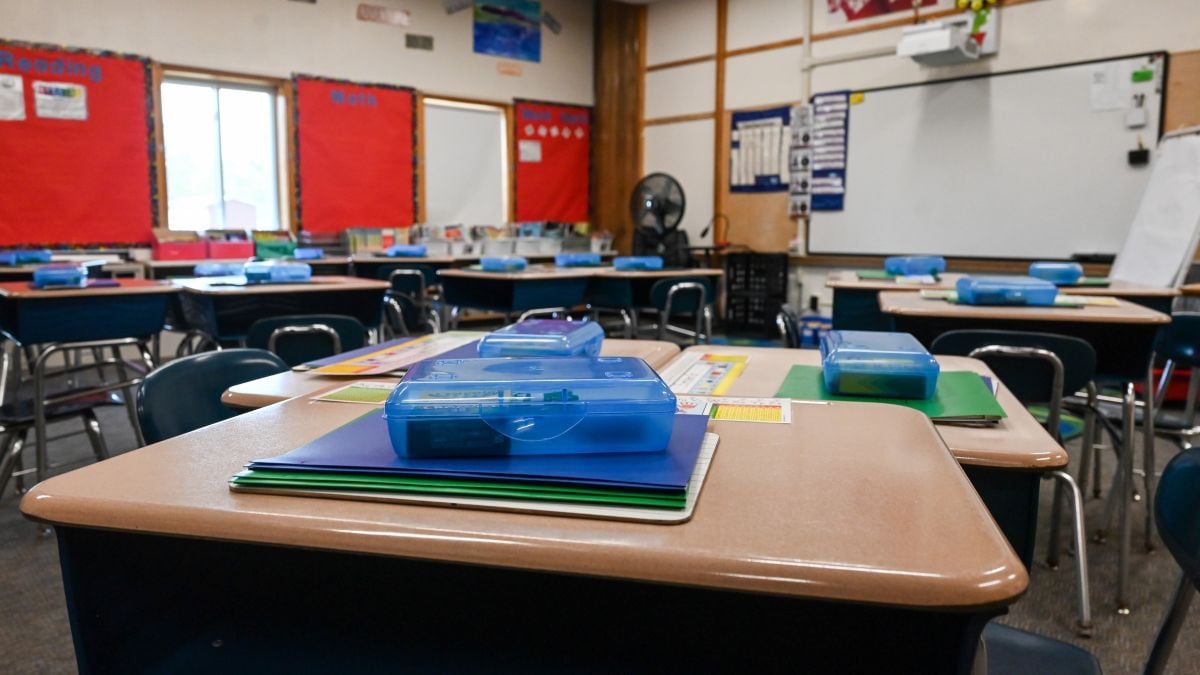|
|
|
A note before we jump in: I was drawn to The Monitor because I believe in our mission of providing Mainers with the information they need to make informed decisions about their lives, and because I saw a chance to provide a public service that would improve my community and the state that I love.
Since its founding, The Monitor has stayed true to its mission. We don’t have a paywall and we allow any news organization to republish our work for free. We are in the midst of our summer fundraising drive, with a goal of raising $50,000. If you are able, I hope you’ll consider supporting what we do. Thank you.
|
|
|
 |
| DONATE NOW |
 |
|
Onward:
Twenty one percent of students in Maine need special education services, one of the highest rates in the country. In most cases, students who require these services are typically separated from the rest of their classmates, a model that has been criticized by disability rights advocates, who argue that an integrated, inclusive system better prepares students for the outside world.
This week, we bring you a story of a pilot program in three elementary schools around the state that will test a new model for special education services, helping teachers learn how to incorporate students with various needs in their classrooms.
We’ve also got more great journalism exploring what the next Medicaid work requirements will mean for Maine families, what’s behind a surge in the tick-borne disease babesiosis and how an expansion of the definition of domestic abuse in state law will impact survivors.
And be sure to listen to our latest Maine Monitor Radio Hour, in which I interview Maine Focus reporter Sawyer Loftus on his recent investigation into a USDA loan program meant to help low-income homebuyers in rural areas that has instead resulted in a wave of foreclosures throughout the state.
Thank you, as always, for reading.
Kate |
 |
|
|
|
Three Maine elementary schools to test new inclusive education model
Special education students are typically separated from the rest of the student body to receive services. A state-run pilot program aims to change that.
Read this story by Kristian Moravec |
 |
|
|
|
|
|
Maine expands definition of domestic abuse: Maine joins nearly a dozen other states around the country that have added “coercive control” to their definition of domestic abuse in civil code. Read this story by Yasmeen Khan |
|
|
|
Surge of rare tick-borne disease linked to warming climate: New England is warming faster than the rest of the world, which has correlated with a marked uptick in cases of tick-borne diseases, including Lyme, Anaplasmosis and babesiosis in Maine and throughout the Northeast. Read this story by Chris D'Angelo |
|
|
|
With little guidance from the federal government, MaineCare recipients wonder if they’ll lose their insurance: We took three cases to health policy experts. They couldn’t provide answers on individual eligibility, but rather gave a general overview of the new rules. Read this story by Rose Lundy |
|
|
|
August ‘radio hour’ digs into USDA housing loan program foreclosures: The show offers a behind-the-scenes look at recent reporting published on The Monitor’s website. Listen to this episode |
 |
|
|
|
|
|
|
|
|
 |
|
Child care providers across the state cited for numerous safety violations
(Published in 2024)
A Maine Monitor and Center for Public Integrity analysis of thousands of inspection records found years of safety violations at child care providers across the state.
Read this story by Alexa Foust & Kate Hapgood |
|
Have feedback or a correction to send to Kate Cough? Send it to her directly via email: kate@themainemonitor.org.
The Maine Monitor is a publication of the Maine Center for Public Interest Reporting, an independent and nonpartisan nonprofit news organization that produces investigative journalism. We believe news is a public good and keep our news free to access. We have no paywall and do not charge for our newsletters. If you value the reporting we do for Maine, please consider making a donation! We cannot do this reporting without your support. |
|
|
|
|
|
|
|
|
|
|